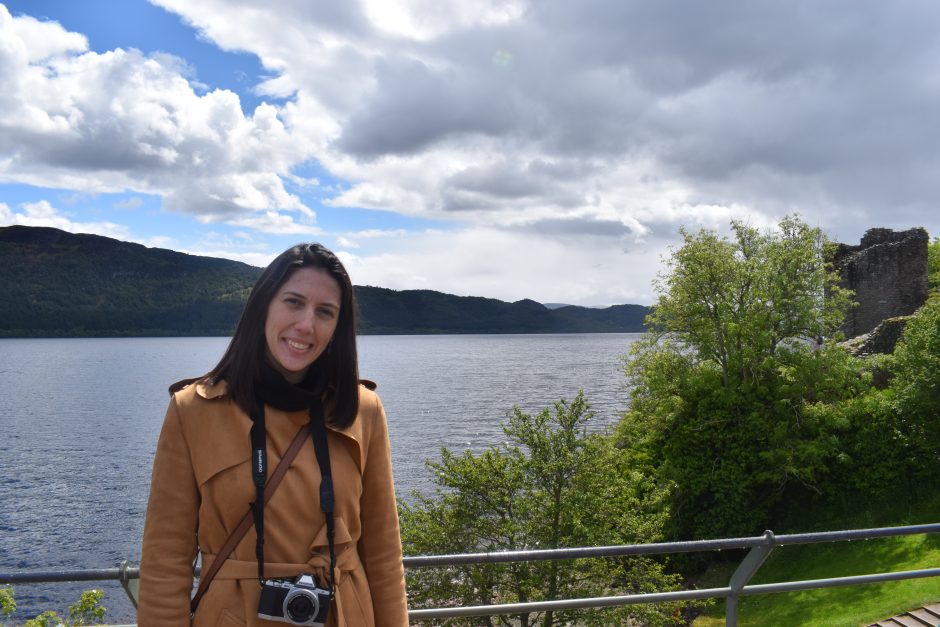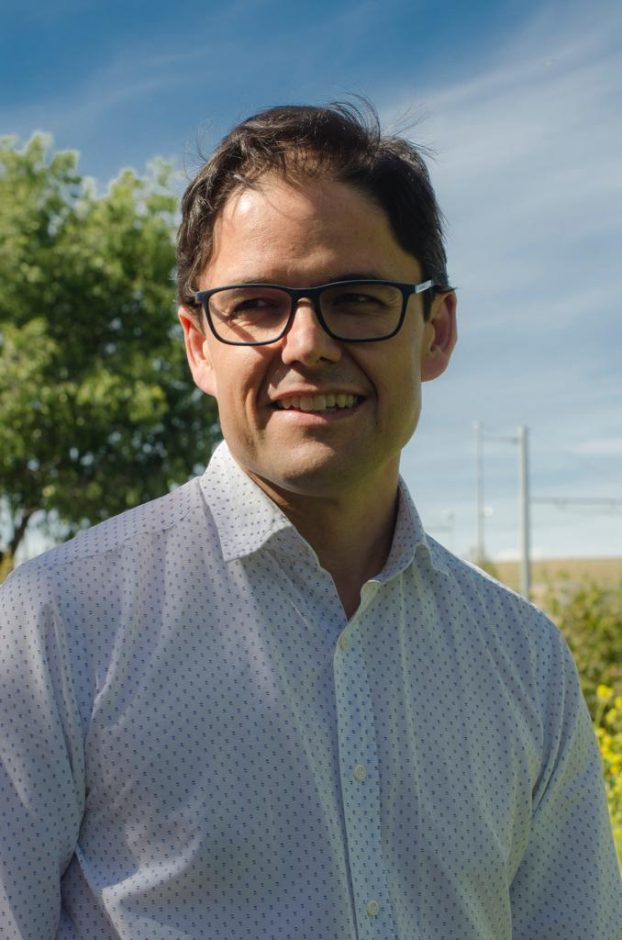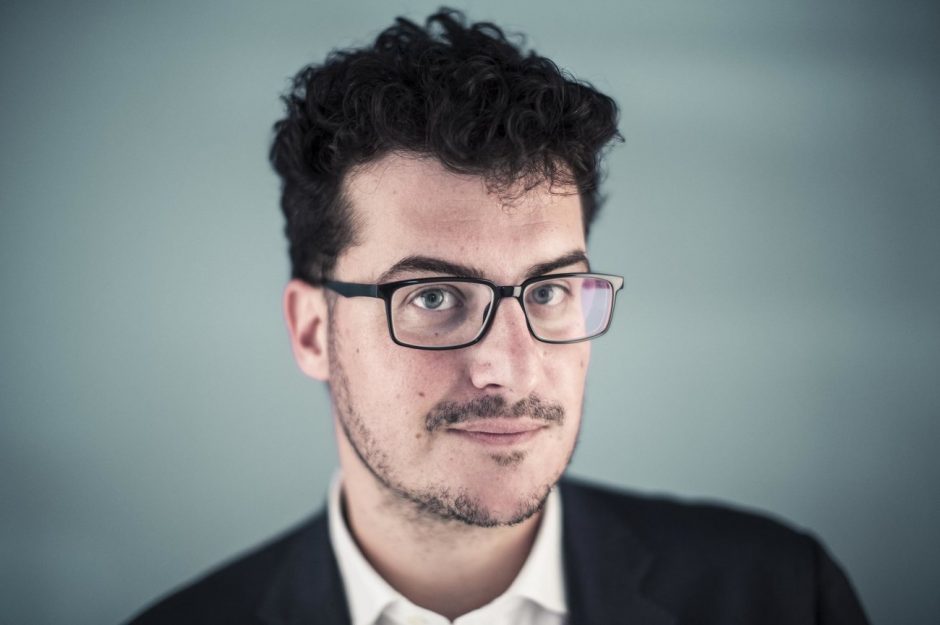Water scarcity in Southern Europe: Raw materials expert insights
29 May 2020
In this new In Our Community series, we interview experts from the cross-KIC initiative “Finding innovative solutions for water scarcity in Southern Europe.” The initiative tasks 16 experts from different disciplines—climate, food, manufacturing and raw materials—to identify core challenges to tackling water scarcity and 30 start-ups are called to offer solutions to them. The initiative concludes with capacity-building for professionals from diverse sectors working on water scarcity. In this article, we talk to a selection of the raw materials experts.
Ana Rita Ferreira, NOVA School of Science and Technology, NOVA University Lisbon

What motivated you to be part of this initiative on water scarcity in Southern Europe?
“Water is the most valuable resource on Earth, and it’s increasingly under stress. For me, the fact that I can use my knowledge and experience to contribute to protecting and mitigating the pressure on water resources is inspiring. Working with other experts—aiming at innovative solutions for water scarcity and driving towards the circular economy to secure supply and improve the raw materials sector in Europe—gives me a sense of accomplishment.”
What raw materials expertise do you bring to the initiative?
“I’m an Environmental Engineer with a Ph.D. focusing on innovative and cutting-edge (bio)chemical technologies. I’ve been working for different international projects addressing water scarcity challenges in Southern Europe with a balance of expertise in agriculture and critical raw materials.”
What does “innovation” mean to you?
“From my point of view, innovation means pursuing a different way of thinking by continuously trying without giving up—the result will lead you to a unexplored path! It’s not only the creation of a new solution for an identified challenge, but also includes thinking from a different perspective and finding new purposes for something that already exists. For water scarcity, innovation plays a key role in the design and development of new solutions, which are not always easy to implement as they need to be disruptive. Innovation is essential to the prosperity of society, and without it we will be not able to build a better future.”
The initiative brings together different experts, sectors, organisations, start-ups and professionals. Moreover, it’s a collaboration between multiple KICs (Knowledge & Innovation Communities), among others: Why do you think ‘breaking down silos’ and bringing together diverse perspectives is important to transforming how we deal with raw materials?
“Water scarcity is a leading challenge of our times that affects whole ecosystems. Thus, the only way to overcome the current barriers is to bring experts from different fields and build a shared, global vision. Through a multi and interdisciplinary approach, it will be possible to take into account supply, use and demand, and find new opportunities for the raw materials sector.”
Dr Felix Gonzalez, ACCIONA

What raw materials expertise do you bring to the initiative?
“I’m a Natural Resources Engineering PhD and Economist BsC, who tries to use the knowledge of both worlds to develop sustainable practices and circular models that are able to address the challenges of the present and the needs of the future. Water is the most circular resource by definition, and we must aspire not to waste one single drop of it.”
What are some of the current challenges with regards to water scarcity in Southern Europe?
“The United Nations gave the world a wonderful gift, The Sustainable Development Goals (SDGs), as the roadmap to sustainability, not only for governments, but also for citizens and private companies. And while the SDG 6 is fully focused on water, none of the remaining 16 goals will be reachable without a global and inclusive water management strategy. The challenge is huge: Agriculture, consumption, climate change… but the source is still there, and all we have to do is to preserve it; the real gold of our civilization.”
How do you think these can be addressed through the initiative?
“The beauty of the initiative is a great combination of passionate and committed cross-sectorial professionals and the convening power of the EIT to promote and strengthen cooperation among them. With such a powerful formula, the solutions are blooming and I do hope they get some traction in the coming years.”
Who or what gives you inspiration in your work with raw materials?
“I guess it was a laconic phrase: “Matter is not created or destroyed, only transformed.” We don’t create matter (yet), and consequently, all our activities are based on the use of raw materials we are able to process. The challenge of finding a sustainable way of doing so has got me trapped in this world.”
Marco de la Feld, ENCO srl

What motivated you to be part of this initiative on water scarcity in Southern Europe?
“Water scarcity is one of the most relevant problems, particularly in the south of Europe. Taking into consideration climate change, water is one of the most important resources for industrial countries. A circular economy approach in 2020 is needed, with the main objective to reduce the water consumption and to use wastewater, like a primary resource for secondary raw materials. New technologies and innovative approaches are primed to transform wastewater into water with added value, with a significant reduction of water consumption. Being part of this expert group, allows me to provide important information about the state of the art, the main policies developed by the EU, and the most relevant technologies developed in the last years, also with EU support and co-funding of the H2020 programme.”
What raw materials expertise do you bring to the initiative?
“Taking into account my experience as an expert in the raw material sector, and my experience as a project coordinator in different H2020 projects in wastewater treatment, my main expertise is related to innovation management in the water sector. In particular, the work done in the last 10 years allows me to provide specific information about innovative technologies present on the market, how to increase water reuse, and how to recover secondary raw materials from wastewater. Technologies play an important role in the EU and particularly in countries like Italy, Spain, Greek and Israel.”
What are some of the current challenges with regards to water scarcity in Southern Europe?
“The main challenges are related to water reuse while taking into consideration global climate change. In fact, it completely changes water availability. Innovations to increase water reuse, following a circular economy approach, is essential for southern countries in the EU to thrive. At the same time, water is one of the most important resources for secondary raw materials. Developing and improving innovative technologies to recover this is an important step the EU must take in order to reduce the dependency on other countries (outside EU) and make the EU independent.”
How do you think these can be addressed through the initiative?
“Putting together different competences around the EU and in different fields of interest is an important step in attaining an overview of the EU’s water use and recovery. All the main considerations, related to innovation, market, industrial needs and policy are covered by this expert group, so in the end, the innovations to be implemented will be identified. Researchers, industrial experts and policy experts can work together in order to identify country-specific needs as well as the most relevant solutions for EU-specific problems.”
Emanuele Bompan, Water Grabbing Observatory

What are some of the current challenges with regards to water scarcity in Southern Europe
“I believe the key issue is the lack of an integrated, systemic, circular approach. Some issues are dealt with in silos, rather than finding an approach that can merge tech, civic society, regulations and the many stakeholders; from agriculture to hydro-energy to water’s right activists.”
How do you think these can be addressed through the initiative?
“We have to avoid tech-only solutions, and also focus on the necessity of raising awareness. We rarely correlate climate change with water scarcity; few think about the complexity of this nexus and how many layers are woven together. If we focus on proper innovations that can favor systemic change, we will be successful.”
The initiative brings together different experts, sectors, organisations, start-ups and professionals. Moreover, it’s a collaboration between multiple KICs (Knowledge & Innovation Communities), among others: Why do you think ‘breaking down silos’ and bringing together diverse perspectives is important to transforming how we deal with raw materials?
“Hyper-specialisation and an engineering-driven approach is a mistake of modern society. In the XVII century, thinkers were mixing philosophy, biology, mathematics, theology and history, not entrenching in silos. We have to think as nature does. In a system.”
Who or what gives you inspiration in your work with raw materials?
“I had done a long term project on the Alps, assessing the melting glaciers and the potential risks to water security. In particular, I did a five-day hike in the Ortles-Cevedale Group, where all the glaciers are poised to die. The image of melting glaciers is one of the driving forces that keeps me going.”
Related Goal
Goal 6: Nurture forests in integrated landscapes





